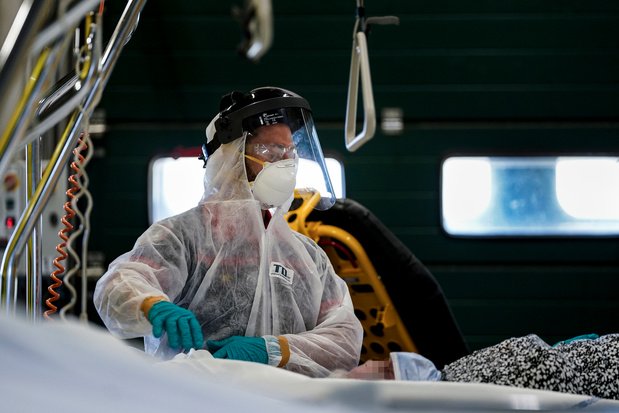Not a day goes by when medical equipment, generally respirators and protective masks, don’t make the front page of the news.
Medical equipment have come to embody a country’s sense of preparedness, and have become a new form of currency as such, with their value often hard to measure in euros and dollars.
On the one hand medical equipment has taken on a diplomatic position, with Chinese exports of expertise and products proving to be one of the most effective soft power exercises in years, and on the other an economic one with countries looking to set up sustainable ways to manage the crisis and get society back up and running.
Before restrictions were even lifted in Wuhan, China was sending medical supplies and experts to countries that were only just beginning to understand the extent to which their populations were being impacted by the coronavirus.
Factories inside the country were changing production lines to produce masks and ventilators, and the Chinese state began requisitioning what was being produced in order to control what was being sold to whom, and provide medical aid to countries across the world.
From Indonesia to Spain, countries were welcoming Chinese planes filled with medical grade gear, sometimes from factories so new to producing it that the quality was questionable to say the least.
Before the lockdowns even started in the US, Alibaba founder - and China’s richest person - Jack Ma, had donated half a million tests to the US. In Belgium, Chinese corporations made similar donations of medical supplies to the Port of Antwerp. On a more comical note, Elon Musk after denying the crisis for weeks, made a donation of irrelevant BPAP machines promising ventilators.
In response to this enormous exercise in soft power a lot of media outlets and governments have done their best to suggest China was criminally negligent, despite shutting down a city of 11 million because of a cluster of 800 cases of pneumonia.
Donald Trump first tried to call the virus ‘Wuhan Virus’ and recently cut off funding for the WHO as a direct attack against ‘The Chinese’. Despite the attempt to stymie all the positive press I doubt many Italians will think negatively of the Chinese when they were sending plains of gear while Germans were banning the export of medical masks, nor will other countries who received medical aid from China, including Belgium. As of yet, Belgium has not received any medical aid from the US.
While all the medical grade equipment is being siphoned by national governments to the health sector, where they can do the most damage mitigation, consumers and workers are often left wondering just how they can protect themselves.
Countries like Austria demanded the use of masks in public, while in Belgium the last time many saw masks for sale they were grossly overpriced and gone within a day. Belgian workers are rightfully demanding protection from their employers who are finding it difficult to even acquire masks.
One medical supplies company in Belgium spoke of their producers in China becoming less and less responsive, while the prices having increased dramatically.. A lot of Belgian companies have taken to sourcing non-medical protective masks locally.
After noticing more and more of their customers in the fashion sector reducing order sizes and asking for leeway on bills Belgian entrepreneurs Jan Staels and Bram Vandeperre, decided to pivot to producing non-medical masks for the consumer market.
“The second wave is a major economic one, and rather than fleeing the scene we came up with a business model that will flip around the negativity many dread with the economy: We retooled our European production lines to make masks. Jan barely escaped the lockdown in Italy a couple of weeks ago when he went to check out the first production.” said Bram, one of the founders of the Belgian start up Creative Social Distancing.
With many employers looking for ways to ensure their employees sense of safety, a lot of our ability to react to this crisis economically will depend on whether people can continue to feel secure in their place of work.
“Making our customer’s employees feel much safer is what we set out to do. We want their people to know that they work for a company that operates responsibly and cares for their safety,’ said Jan.
As companies and countries rush to plug the holes in demand in the medical and private sector, new industries are responding to the call. It is said that millions of masks will be produced locally in the coming year, reorienting and reinvigorating local supply chains and economies.
What’s at stake ranges from the balance of geopolitical power to the necessary sense of safety all of us need in order to restart our normal lives once we get this thing under control. One thing is certain, once the rubble clears we will wake up to a very new world, and it makes one wonder what exactly will be deemed valuable in that world.
Alexandre D'hoore


